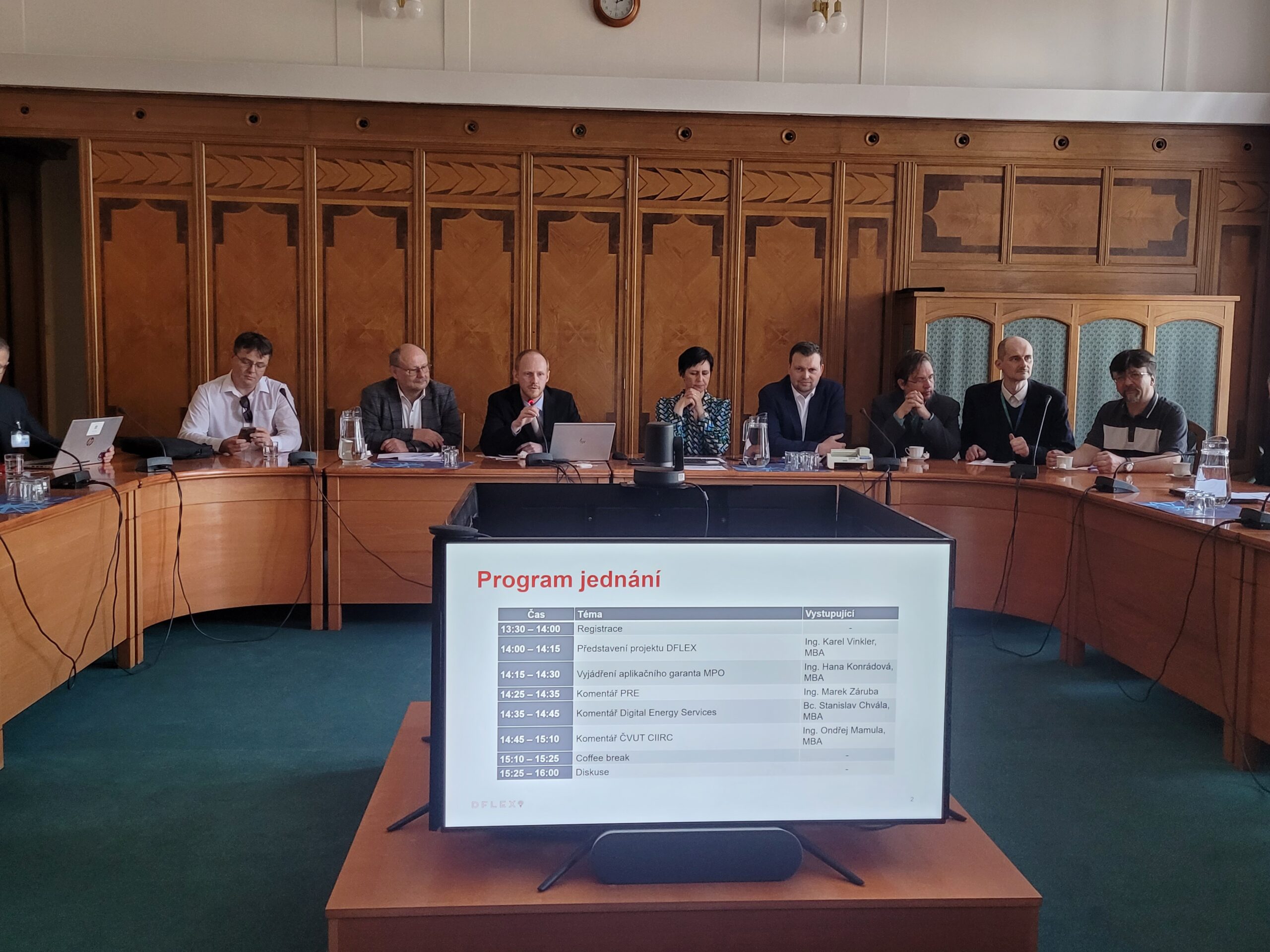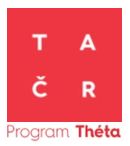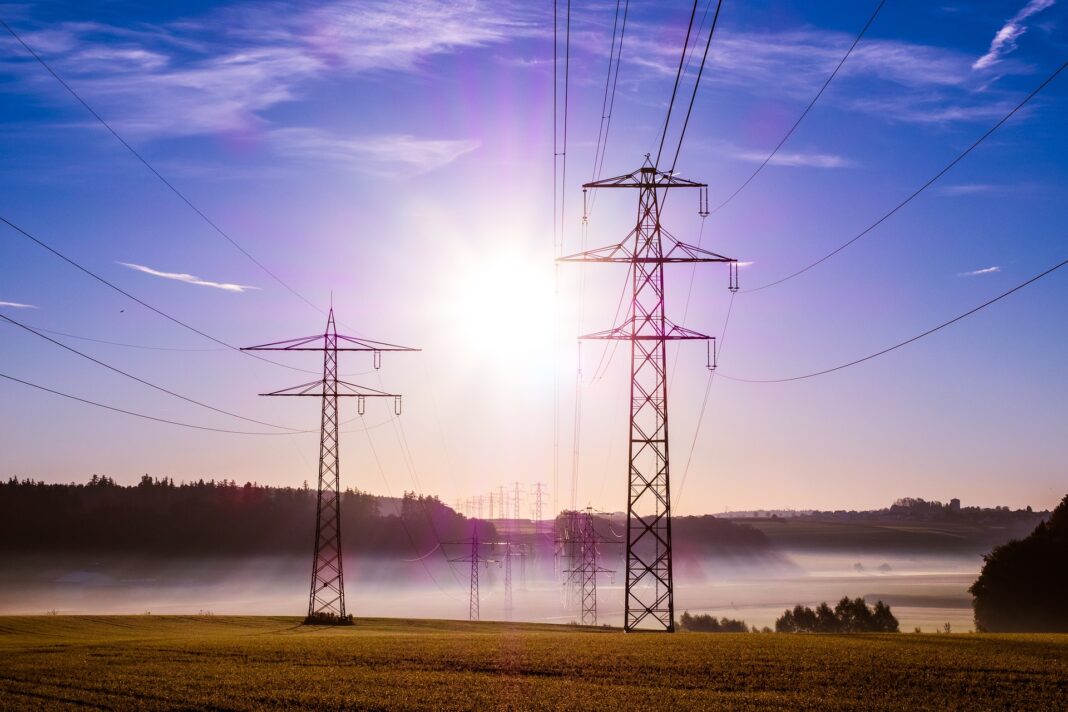Consortium members presented the results of the DFLEX project focused on the topic of involving consumers, who can purposefully change their electricity consumption, in the management of the electricity system. The project brought valuable outputs, some of which have already been put into practice.
The Dflex project verified the way flexibility providers are involved and managed on the consumption side and defined the relationships between the aggregator, the electricity supplier, the flexibility provider and the ČEPS company as the Czech transmission system operator. The project also allowed to test how to evaluate and financially settle the flexibility provided. It was also determined whether the offered flexibility is compatible with the standard requirements of ČEPS for power balancing services.
In addition to verifying the possibility of using flexibility aggregation in the Czech Republic, the main contribution of the Dflex project was creation of algorithms for evaluation of the flexibility provided and financial settlement of the services provided. The results of the project were presented by members of the consortium at a workshop held on 22 March 2023 in the building of the Ministry of Industry and Trade of the Czech Republic.
DFLEX was implemented as part of the THETA program of the Czech Technology Agency. Its main beneficiary was the ČEPS company, the Czech Institute of Informatics, Robotics and Cybernetics of the Czech Technical University, Pražská energetika and Digital Energy Services from the Nano Energies group also participated in the project. The application guarantor was the Ministry of Industry and Trade of the Czech Republic, and the associated partner was the Capital City of Prague.

„The outputs of the project proved that the use of the consumption side for the purpose of providing SVR is necessary, however, for a wider extension, e.g. at the low voltage level, it is necessary to solve some other issues. For example, this is the exact settlement of the SVR and the associated correction of the electricity supplier’s diagram for customers where the independent aggregator uses flexibility,“ says Svatopluk Vnouček, deputy chairman of the ČEPS board responsible for strategy, innovations and development of the transmission system.
„We demonstrated the potential of effective cooperation between the academic community and industrial partners not only by involving experts with many years of experience, but also by using capacities and tools for data analysis or verification of various aggregation models. Thanks to this, the market adjustments proposed by the DFLEX project are better adapted to the needs and possibilities of the Czech energy industry,“ says Ondřej Mamula, Head of the Energy Group, Czech Institute of Informatics, Robotics and Cybernetics, CTU.
„From the beginning, the project faced a number of challenges, especially its complexity, timelessness and application limitations. Thanks to the active approach of all project participants and selected flexibility providers from among Pražská energetika customers, it was possible to successfully deal with most of these challenges and successfully complete the project. The current state of the SVR market confirms that the involvement of flexibility on the consumption side in the provision of power balancing services has a future, and the interest in providing flexibility on the part of providers is currently growing significantly,“ says Marek Záruba, head of the Trading section at Pražská energetika.

„The Dflex project made sense. He proved that a really large number of customers could be involved in the support services market if the conditions for using flexibility on the consumption side were set up correctly. I believe that in order to reach their potential in the necessary time and quantity, we need independent aggregation – and Dflex has clearly shown that its introduction would benefit the Czech Republic,“ says Nano Energies director Stanislav Chvála. „Personally, I also see it as important that we manage to set up the relationships between market entities correctly – between the flexibility aggregator, the trader and the transmission system operator – and that the necessity of further development of work with data between market entities has been confirmed.“
The project brought valuable outputs, some of which were already implemented during its course – for example, in the form of amendments to the Transmission System Operation Rules (PS Code) in Part II, which entered into force on January 1, 2021. Further changes will be implemented in the following years. He also identified a number of related topics and questions that need to be answered. For this, follow-up research activities and projects are needed.


Glossary of terms:
Aggregator: an entity that uses flexibility from a larger number of producers and/or consumers and transforms it into standard products, which it then offers on different electricity markets or SVR. In the case of an integrated aggregator, it is the electricity supplier directly, as an independent aggregator it can also be a third party.
Consumer flexibility: the ability of consumers to change their consumption of electricity in a targeted manner and for a fee.
PS Codex: The transmission system operation rules (PS Codex) contain information for market participants and minimum technical, structural and operational requirements for connection and use of the transmission system.
Power balance services (SVR): With the help of SVR, ČEPS maintains a balance between the production and consumption of electricity, which is a prerequisite for the functioning of the entire electricity system.

More info about the Dflex project you can read in the article Článek_Dflex_Lepší uplatnění pro agregaci flexibility and in the Report Zpráva projektu DFLEX o využitelnosti agregace flexibility v ČR (both are in the Czech only).
The ČEPS Press Release in Czech is available HERE.



